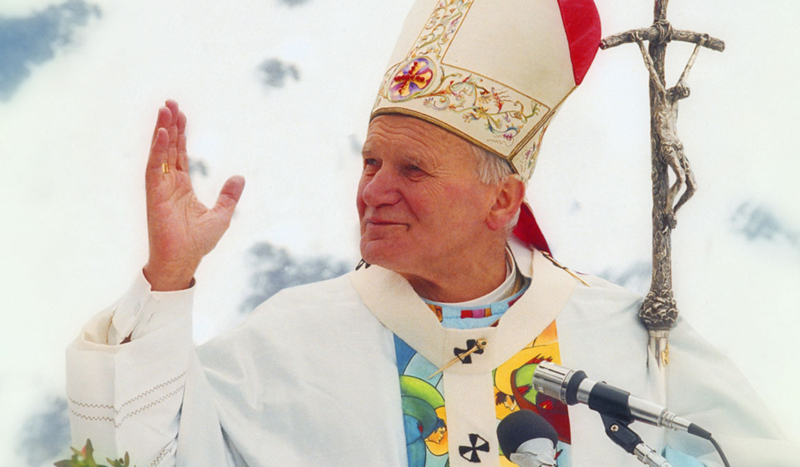
Gregorini Demetrio / Panoramio
CV NEWS FEED // Wall Street Journal columnist Mary Anastasia O’Grady called on the Catholic Church in a May 4 piece to rediscover the bold leadership it once displayed under St. John Paul II, especially as persecution of the Church intensifies across Latin America.
With bishops soon gathering in Rome to choose a new pope, O’Grady argued that the moment demands a spiritual leader who can resist the pressures of authoritarian regimes.
“[T]he Church needs a 21st-century version of St. John Paul II,” O’Grady wrote.
She pointed to Nicaragua as one of the starkest examples of modern-day religious oppression. President Daniel Ortega has escalated a years-long campaign against the Catholic Church, targeting clergy, shutting down ministries, and eliminating public religious expression.
According to O’Grady, Ortega appears to be taking cues from the Vatican’s 2018 accord with Beijing, which gave the Chinese Communist Party a decisive role in the selection of bishops.
>> China appoints new bishops during ‘sede vacante,’ defying Vatican agreement <<
“Apparently [Ortega] thinks if he turns up the heat high enough he can get a similar deal,” O’Grady wrote.
She warned that such an outcome wouldn’t remain isolated.
“If he succeeds, Cuba and Venezuela will expect one too,” O’Grady wrote. “What better way to eliminate the independence of one of the few institutions still standing among the ruins of democracy?”
O’Grady contrasted this approach with the example set by Pope John Paul II, who, after his election in 1978, moved away from the Church’s mid-20th-century diplomatic posture toward communist regimes. That policy, known as Ostpolitik, emphasized quiet negotiation over confrontation, often trading silence on persecution for limited operational freedoms.
Pope John Paul II, a survivor of both Nazi and Soviet oppression in Poland, took a different path. Instead of capitulating, he ignited a movement that helped dismantle communist rule across Eastern Europe.
O’Grady referenced John Paul II’s biographer George Weigel, who explained that Pope John Paul II’s strategy “ended the anti-communist rhetoric that had characterized [Vatican] public diplomacy in the 1950s, removed several senior churchmen who refused to concede anything to communist governments,” and discouraged both exiled Catholic leaders and underground resistance.
John Paul II, according to Weigel, “conducted a vocal human rights campaign that was instrumental in igniting the revolution of conscience that shaped the revolution of 1989 and the self-liberation of east central Europe from communism.”
In Cuba, Venezuela, and Nicaragua, authoritarian regimes have targeted the Catholic Church through intimidation, property seizures, surveillance, and censorship, O’Grady noted. In Cuba, clergy were expelled and public worship suppressed for decades; in Venezuela, bishops who opposed socialist abuses have faced significant retaliation; and in Nicaragua, priests are monitored, sermons censored, and Catholic institutions dismantled.
“Cuban, Venezuelan and Nicaraguan Catholics have put it all on the line in defense of their brethren and in the name of human dignity,” she said. “They need a pope who will back them unequivocally, as John Paul II once did for the people of Eastern Europe.”

